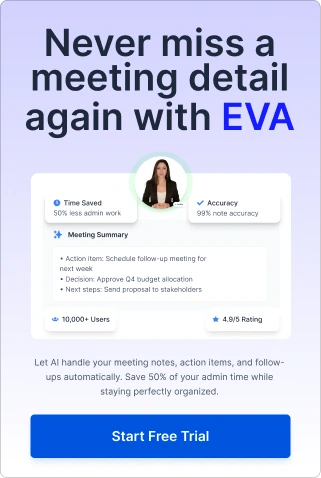Table of Contents
In today’s digital world, business automation is crucial for driving efficiency and improving customer experiences. While chatbots have served businesses well by automating basic tasks, the demand for smarter, more proactive systems has led to the rise of AI agents. These autonomous AI systems represent the next phase of business automation, moving beyond the limitations of traditional chatbots to deliver real-time, context-aware solutions that improve decision-making and operational efficiency.
In this blog, we’ll compare AI agents to traditional chatbots, explain why AI agents are the future of business automation, and explore how Paradiso AI’s solutions can help your business upgrade to the next generation of automation.
What Are AI Agents and How Do They Differ from Chatbots?
A. What Are AI Agents?
AI agents are intelligent, autonomous systems that can make decisions, initiate actions, and learn from interactions without requiring constant human oversight. Unlike chatbots, which are typically reactive and operate within predefined scripts, AI agents can actively solve problems, manage complex workflows, and adapt to changing environments based on real-time data.
B. Traditional Chatbots vs. AI Agents: Key Differences
- Chatbots are reactive, responding only to user queries based on predefined instructions and responses.
- AI agents are proactive, meaning they can analyze data, anticipate customer needs, and even take action before the customer asks.
For example, while a chatbot might respond to a customer query about store hours, an AI agent could predict potential issues and proactively resolve them by notifying customers about delays or offering solutions in advance.
Why AI Agents Are the Future of Business Automation
A. Proactive Customer Engagement
Unlike chatbots, which wait for users to initiate interaction, AI agents can proactively engage with customers. These systems can detect potential problems (like a delay in shipping) and reach out to resolve issues before the customer even notices, offering a seamless experience.
Example:
An AI agent might identify that a customer’s order is delayed and send a proactive update, offering alternative solutions like expedited shipping or a discount on the next purchase, all before the customer needs to contact support.
B. Autonomous Decision-Making
AI agents use machine learning to process vast amounts of data and make decisions autonomously. This enables businesses to automate more complex processes, such as inventory management, sales forecasting, and customer behavior analysis, without requiring constant human input.
Example:
An AI agent analyzing customer data might automatically adjust marketing campaigns or product recommendations based on real-time shifts in customer behavior, improving personalization and engagement.
C. Enhanced Personalization
AI agents can provide a personalized experience at scale. By analyzing historical interactions, preferences, and purchase behaviors, these systems can deliver tailored recommendations, ensuring customers receive the most relevant content and products.
Example:
An AI agent might suggest a product to a customer based on their previous browsing history, current trends, and inventory data—offering a truly personalized shopping experience.
D. Increased Efficiency and Cost Savings
As businesses grow, managing customer interactions manually becomes increasingly complex and resource-intensive. AI agents enable businesses to automate complex tasks across multiple departments, such as customer service, sales, and logistics, allowing companies to scale while reducing human labor costs.
Example:
Instead of relying on a customer service team to manually process each inquiry, AI agents can handle hundreds of queries simultaneously, automating everything from order status updates to product inquiries and problem resolution.
Why Businesses Should Embrace AI Agents for Automation
A. Scalability
With AI agents, businesses can scale customer service and operations more efficiently. These autonomous systems can handle increasing workloads, allowing businesses to expand without the need to increase their workforce.
Example:
As customer queries grow, an AI agent can handle thousands of simultaneous inquiries across multiple channels (chat, email, voice) without the need for additional human resources.
B. Real-Time Data Processing and Action
AI agents can process real-time data and take immediate action based on this information. Whether it’s optimizing inventory levels, adjusting pricing strategies, or responding to customer complaints, AI agents can make decisions that enhance business performance.
Example:
An AI agent can identify a sudden surge in product demand and adjust pricing or recommend stock replenishment before human managers are even aware of the issue.
C. Competitive Advantage
By adopting AI agents, businesses can gain a competitive edge. These systems allow for better customer service, faster decision-making, and smarter automation that competitors may not yet have. This efficiency and innovation are crucial for staying ahead in the marketplace.
How Paradiso AI’s Solutions Can Help You Upgrade to AI Agents
Paradiso AI provides next-generation AI agents that go beyond chatbots, offering businesses the opportunity to move toward fully autonomous AI systems. Here’s how Paradiso AI helps businesses unlock the power of AI agents:
A. Seamless Integration
Paradiso AI solutions integrate seamlessly with existing business systems (CRM, ERP, etc.), enabling businesses to adopt AI agents without disrupting their current operations. These autonomous AI systems are customizable and scalable to meet unique business needs.
B. AI-Powered Automation
By automating everything from customer interactions to sales processes and back-end operations, Paradiso AI’s AI agents help businesses achieve higher efficiency and productivity. The real-time decision-making capabilities of AI agents also help businesses adapt to shifting market conditions quickly.
C. Enhanced Personalization
Paradiso AI’s agents use advanced machine learning algorithms to offer personalized experiences at scale. Whether it’s product recommendations, customer support, or marketing campaigns, AI agents deliver the right message to the right customer at the right time.
Conclusion: The Future of Business Automation is AI Agents
The evolution from chatbots to AI agents marks the next major milestone in business automation. Moving beyond reactive systems, AI agents offer businesses the ability to proactively engage customers, make autonomous decisions, and automate complex processes, all while providing personalized experiences at scale.
Paradiso AI’s AI agents are designed to help businesses automate key operations, reduce costs, and deliver better customer experiences. Don’t get left behind—upgrade to autonomous AI systems today and stay ahead of the competition.
In this post, we’ll walk you through five actionable steps to master your AI meeting assistant — with a spotlight on Paradiso AI — so you can make every meeting count.
9) FAQs
AI agents are autonomous systems that make decisions and take proactive actions, while chatbots are reactive and respond to customer queries based on pre-defined scripts.
AI agents automate complex tasks, make proactive decisions, and offer personalized experiences, helping businesses improve efficiency, scalability, and customer satisfaction.
Upgrading to AI agents allows businesses to move from reactive to proactive automation, providing smarter decision-making and real-time customer engagement.
Paradiso AI provides scalable autonomous AI solutions that integrate seamlessly with your business, automating key functions like customer service and data-driven decision-making.
 Free
Free







